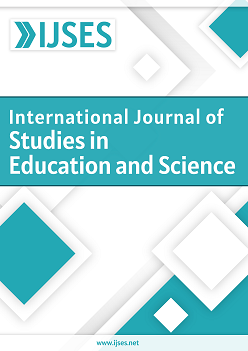Enhancing Engagement and Autonomy in Advanced Japanese Learning as the Second Language through AI-Assisted Video Production
DOI:
https://doi.org/10.46328/ijses.111Keywords:
Second language learning, Japanese language, Generative AI, Video production, AutonomyAbstract
This study delves into the integration of generative AI in second language acquisition, particularly focusing on advanced Japanese learners' autonomy and motivation enhancement through video production. Drawing from Japan's educational guidelines and prior research, the investigation examines the roles of generative AI in language education, emphasizing ethical considerations and strategies for effective integration (Mollick & Mollick, 2023). The course implemented a hybrid approach, combining language instruction with media production, where students created YouTube videos in Japanese. Their productions were supported by AI tools for language correction, narration, and content generation. Results indicate that while AI facilitated practical language learning, instructor guidance remained crucial for ensuring accuracy and contextual appropriateness. The study highlights challenges such as overreliance on AI-generated content and the need for nuanced communication in prompt engineering. Despite these challenges, students demonstrated cultural understanding and improved nonverbal communication skills through video production. Future research aims to analyze students' reflections on their experiences, shedding light on their insights and future applications of AI in language learning.References
Takeda-Kolb, N. & Ohsawa, H. (2024). Enhancing engagement and autonomy in advanced Japanese learning as the second language through AI-assisted video production. International Journal of Studies in Education and Science (IJSES), 5(4), 432-456. https://doi.org/10.46328/ijses.111
Downloads
Published
Issue
Section
License
Articles may be used for research, teaching, and private study purposes. Authors alone are responsible for the contents of their articles. The journal owns the copyright of the articles. The publisher shall not be liable for any loss, actions, claims, proceedings, demand, or costs or damages whatsoever or howsoever caused arising directly or indirectly in connection with or arising out of the use of the research material.
The author(s) of a manuscript agree that if the manuscript is accepted for publication in the International Journal of Studies in Education and Science (IJSES), the published article will be copyrighted using a Creative Commons “Attribution 4.0 International” license. This license allows others to freely copy, distribute, and display the copyrighted work, and derivative works based upon it, under certain specified conditions.
Authors are responsible for obtaining written permission to include any images or artwork for which they do not hold copyright in their articles, or to adapt any such images or artwork for inclusion in their articles. The copyright holder must be made explicitly aware that the image(s) or artwork will be made freely available online as part of the article under a Creative Commons “Attribution 4.0 International” license.

This work is licensed under a Creative Commons Attribution-NonCommercial-ShareAlike 4.0 International License.





